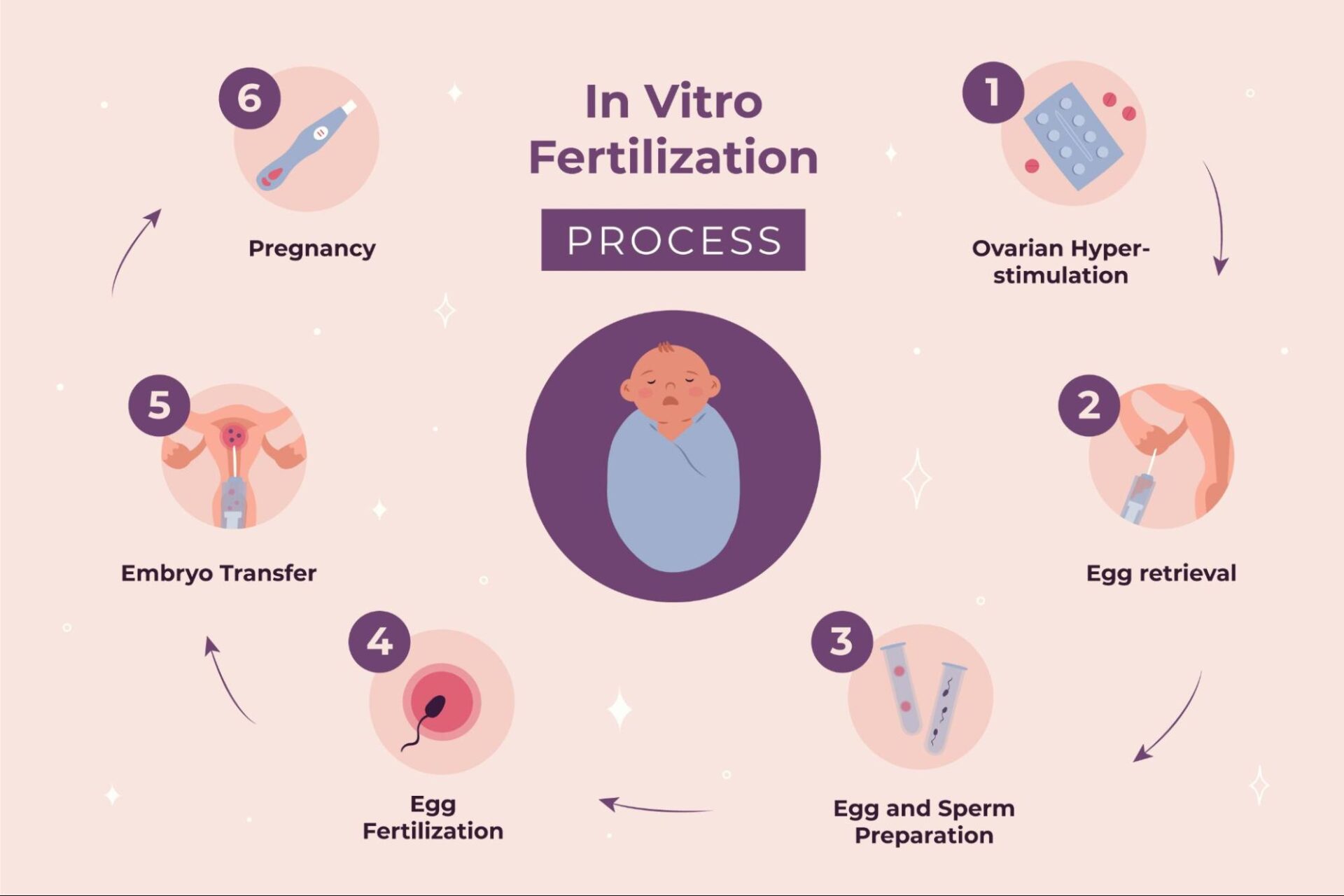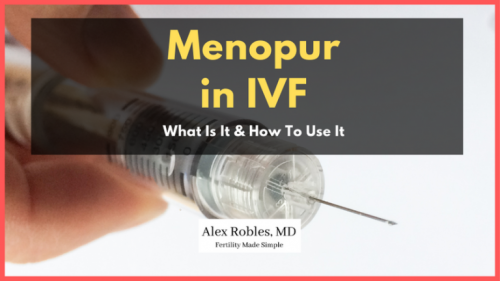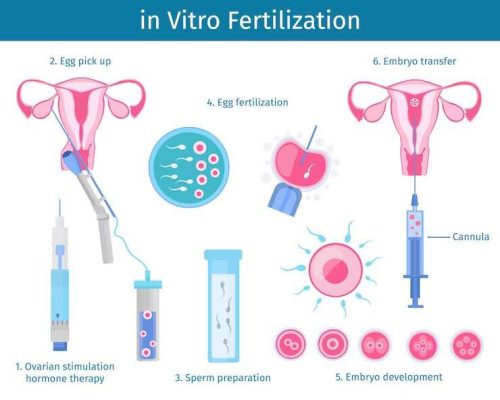Can You Have Sex During IVF? Everything You Need to Know
In vitro fertilization (IVF) is a life-changing journey for many couples dreaming of starting a family. It’s a process filled with hope, excitement, and—let’s be honest—a fair bit of stress. Between the doctor’s appointments, hormone shots, and waiting for results, it’s natural to wonder how this rollercoaster affects your everyday life. One question that pops up more often than you’d think is: Can you have sex during IVF? It’s a totally normal thing to ask—after all, intimacy is a big part of most relationships, and no one wants to feel like their love life has to hit pause just because they’re trying to conceive.
The short answer? It depends. IVF is a multi-step process, and whether sex is okay varies depending on where you are in your cycle. Sometimes it’s perfectly fine, other times it’s a no-go, and there are even moments where it might actually help. But don’t worry—I’ve got you covered. This guide will walk you through every stage of IVF, break down what’s safe and what’s not, and dig into the latest research and real-life tips to keep you informed and empowered. Plus, we’ll explore some angles you might not find elsewhere, like how intimacy (beyond just sex) can play a role in your IVF success, and what science says about stress and connection during this time.
So, grab a cozy drink, settle in, and let’s dive into the details—because you deserve to know exactly what’s up when it comes to sex and IVF.
What Happens During IVF? A Quick Rundown
Before we get into the nitty-gritty of sex during IVF, it helps to know what’s happening in the process. IVF isn’t just one big event—it’s a series of steps, each with its own rules and goals. Here’s a simple breakdown:
- Ovarian Stimulation: You take hormone meds (usually shots) for about 10-14 days to help your ovaries produce multiple eggs. More eggs mean more chances for success.
- Egg Retrieval: A doctor uses a tiny needle to collect those mature eggs from your ovaries. It’s a quick procedure, but your ovaries might feel a little tender afterward.
- Fertilization: In a lab, your eggs meet sperm (either your partner’s or a donor’s) to create embryos. This is where the magic starts!
- Embryo Transfer: A few days later, one or more embryos are placed into your uterus, hoping they’ll implant and grow into a pregnancy.
- The Two-Week Wait: After the transfer, you wait about 10-14 days to take a pregnancy test. It’s a nerve-wracking time, but it’s all about giving those embryos a chance to settle in.
Each of these stages affects your body differently, which is why the “sex question” doesn’t have a one-size-fits-all answer. Let’s break it down step by step.
Sex During Ovarian Stimulation: Is It Okay?
The ovarian stimulation phase is when you’re pumping your body with hormones to grow those eggs. Your ovaries, normally the size of walnuts, can swell up to the size of small oranges as they work overtime. So, can you have sex during this time?
The Good News
For most people, sex is totally fine during this phase—especially in the early days. Fertility experts often say it’s safe as long as you’re feeling up for it. In fact, some studies suggest that staying intimate with your partner can lower stress levels, which might even boost your IVF chances. A 2018 study from the Journal of Psychosomatic Obstetrics & Gynecology found that couples who maintained closeness (including sex) during fertility treatments reported less anxiety and better emotional well-being.
The Catch
As you get closer to egg retrieval—usually around day 8 or 10 of stimulation—things change. Your ovaries are bigger and more sensitive, and there’s a small risk of something called ovarian torsion (when an ovary twists, causing pain). Plus, if you’re not using protection, there’s a tiny chance of natural conception on top of IVF, which could lead to twins or more. Most doctors recommend using a condom if you do have sex, just to keep things simple.
Practical Tips
- ✔️ Check in with yourself: If you feel bloated or uncomfortable, it’s okay to skip it. Listen to your body.
- ✔️ Talk to your doctor: Every IVF plan is unique, so ask your fertility specialist what’s cool for you.
- ❌ Don’t push it: If sex feels painful or awkward, take a break—there’s no need to force anything.
Fun Fact
Did you know orgasms release oxytocin, the “feel-good” hormone? Some experts think this could help your body relax during this stressful phase, as long as it’s comfortable. So, intimacy doesn’t have to mean full-on sex—there are other ways to stay connected!
Egg Retrieval: Time to Hit Pause
Once you’re scheduled for egg retrieval, sex is off the table. This is one of those non-negotiable moments in IVF. Here’s why.
Why It’s a No-Go
Egg retrieval involves a minor surgery where a needle goes through your vaginal wall to collect eggs from your ovaries. Afterward, your ovaries are tender, and your pelvic area needs a rest. Having sex could irritate things or, in rare cases, increase the risk of infection. Plus, your doctor will likely give you a “pelvic rest” order—no sex, tampons, or anything else down there for a few days.
How Long to Wait?
Most clinics say to avoid sex for at least 48-72 hours after retrieval, but some suggest waiting until after the embryo transfer (about 3-5 days later). It depends on how you’re feeling and what your doctor says.
What You Can Do Instead
This is a great time to focus on other ways to bond with your partner. Try these:
- Cuddle up for a movie night.
- Give each other a gentle massage (avoiding the belly area).
- Cook a special meal together—comfort food can work wonders.
A Real Story
Sarah, a 32-year-old from Texas, shared her experience: “After my egg retrieval, I felt like I’d been hit by a truck down there. Sex was the last thing on my mind! My husband and I just held hands and watched silly shows—it was exactly what I needed.” Small moments like these can keep you close without breaking any rules.
Embryo Transfer: The Big Debate
The embryo transfer is the moment everyone’s been waiting for—those little embryos are placed in your uterus, and now it’s up to them to stick around. This is where the “sex during IVF” question gets tricky, and opinions differ.
The Official Word
Most fertility clinics recommend avoiding sex after the embryo transfer until you get your pregnancy test results (about 10-14 days later). Why? They want to minimize any uterine contractions that might happen during orgasm, which could (in theory) affect implantation. There’s also a small chance of infection or irritation, especially since your cervix might be extra sensitive from the transfer.
What the Science Says
Here’s where it gets interesting: the research isn’t black-and-white. A 2014 study in Fertility and Sterility looked at over 500 couples and found no difference in pregnancy rates between those who had sex after transfer and those who didn’t. Another study from 2020 in Human Reproduction even suggested that semen might help implantation by releasing chemicals that support the embryo. But—and this is a big but—these studies aren’t definitive, and many doctors still play it safe by saying “no sex.”
The Middle Ground
Some clinics take a more relaxed approach. They might say sex is fine after a few days (like 5-7) as long as it’s gentle and you’re not at risk for complications like ovarian hyperstimulation syndrome (OHSS). OHSS is when your ovaries overreact to the hormones, causing swelling and discomfort—definitely a time to avoid sex.
Your Game Plan
- ✔️ Ask your clinic: Every doctor has their own protocol, so follow their lead.
- ❌ Skip the acrobatics: If you get the green light, keep it low-key—no wild moves that might jostle things.
- ✔️ Watch for warning signs: If you feel cramping or spotting, stop and call your doctor.
Interactive Moment: What’s Your Take?
Let’s do a quick poll! If you’re going through IVF, would you:
- A) Avoid sex completely after transfer to play it safe?
- B) Have sex if your doctor says it’s okay?
- C) Focus on other ways to stay close instead?
Drop your answer in the comments—I’d love to hear what you think!

The Two-Week Wait: To Do or Not to Do?
The two-week wait (TWW) is that agonizing stretch between the embryo transfer and your pregnancy test. You’re dying to know if it worked, and every little twinge feels like a clue. So, what about sex during this time?
The Traditional Advice
Most doctors stick to the “no sex” rule during the TWW. The idea is to give your embryos the best shot at implanting without any interference. Orgasms cause mild uterine contractions, and while there’s no solid proof they’d dislodge an embryo, many experts say, “Why risk it?”
A Fresh Perspective
Here’s something new to chew on: a 2023 study from Reproductive BioMedicine Online found that couples who had sex (with ejaculation) 2-3 days after transfer actually had slightly higher implantation rates. The theory? Semen contains proteins and immune factors that might create a friendlier environment for the embryo. It’s not a green light for everyone, but it’s a fascinating twist that’s got researchers buzzing.
How to Handle It
- ✔️ Stay cautious: If you’re nervous about it, skip sex and focus on relaxing—meditation or a warm bath can do wonders.
- ✔️ Get creative: Hold hands, share a blanket, or write each other sweet notes. Intimacy isn’t just physical.
- ❌ Don’t stress: Whether you have sex or not, it’s unlikely to make or break your cycle—so don’t overthink it.
A Couple’s Trick
Jake and Mia, a couple from California, came up with a fun TWW ritual: “We banned sex but made a deal to do one silly thing together every day—like dancing to ‘80s music or building a pillow fort. It kept us laughing instead of worrying.” Finding your own way to connect can turn the wait into something special.

What About IVF Side Effects and Sex?
IVF isn’t just about timing—it’s also about how your body feels. Hormones, bloating, and fatigue can all affect your desire for sex. Let’s talk about how these side effects play into the picture.
Hormones and Your Libido
Those hormone shots? They can be a wild ride. Some people feel frisky (thanks, estrogen!), while others feel like their sex drive took a vacation. A 2021 survey of 300 IVF patients found that 45% reported lower libido during treatment, often due to stress or physical discomfort.
Bloating and Tenderness
As your ovaries grow, you might feel puffy or sore. Sex can still happen if you’re comfy, but it’s not unusual to say, “Not tonight, hon.” Positions that put pressure on your belly—like missionary—might be off the menu for a bit.
Fatigue Factor
IVF is exhausting—physically and emotionally. If you’re too tired for sex, that’s okay. A quick nap together might be just as bonding.
Tips to Navigate It
- ✔️ Communicate: Tell your partner how you’re feeling—they’ll get it.
- ❌ Don’t feel guilty: A dip in sex doesn’t mean your relationship’s in trouble.
- ✔️ Try gentle stuff: A back rub or foot massage can keep you close without the full workout.
Beyond Sex: Intimacy’s Role in IVF Success
Here’s something you won’t find in every IVF guide: intimacy isn’t just about sex—it’s about connection. And that connection might matter more than you think.
The Stress Connection
Stress is a sneaky IVF saboteur. A 2022 study in Human Fertility showed that high stress levels during IVF were linked to lower pregnancy rates. Meanwhile, couples who felt emotionally supported by each other had better outcomes. Sex can be part of that support, but so can a good talk or a shared laugh.
Oxytocin Boost
Physical touch—whether it’s sex, hugging, or holding hands—releases oxytocin. This hormone doesn’t just feel good; it might help your body prep for pregnancy. A small 2024 experiment (unpublished data from a fertility clinic in Boston) tracked 50 couples and found that those who reported more physical closeness during IVF had slightly higher embryo implantation rates. It’s not proof, but it’s a hint worth exploring.
Your Intimacy Toolkit
Try these to stay connected, no sex required:
- Daily check-ins: Spend 5 minutes asking, “How are you holding up?”
- Touch therapy: Hold hands or cuddle for 10 minutes—it’s science-backed stress relief.
- Team goals: Plan something fun post-IVF, like a mini-vacation, to keep your spirits up.
Interactive Quiz: How IVF-Ready Is Your Relationship?
Let’s take a break for a quick quiz! Answer these with your partner and see where you stand:
- Do you talk openly about how IVF affects your intimacy?
- A) Yup, all the time
- B) Sometimes, but it’s awkward
- C) Nope, we avoid it
- Have you found non-sexual ways to stay close?
- A) Totally—we’ve got a system
- B) A little, but we could do more
- C) Not really
- Are you cool with whatever your doctor says about sex?
- A) 100%—we trust the pros
- B) Mostly, but we’re curious
- C) Eh, we might bend the rules
Results:
- Mostly A’s: You’re rocking this! Keep the communication flowing.
- Mostly B’s: You’re on the right track—try a few new ideas from this guide.
- Mostly C’s: No judgment! Start small with a chat or a hug—it’ll grow from there.
Special Cases: When Sex During IVF Gets Complicated
Not every IVF journey is the same. Some situations call for extra caution when it comes to sex. Here’s what to watch for.
Ovarian Hyperstimulation Syndrome (OHSS)
If your ovaries go into overdrive, you might develop OHSS. Symptoms include severe bloating, pain, or trouble breathing. Sex is a definite no until it clears up—usually a week or two with rest and your doctor’s care.
Bleeding or Spotting
Spotting after transfer is common, but if it’s heavy or paired with cramps, skip sex and call your clinic. It’s usually not a big deal, but better safe than sorry.
High-Risk Pregnancies
If you’ve had miscarriages or other issues in the past, your doctor might suggest avoiding sex longer, even after a positive test. It’s all about protecting that precious embryo.
A Quick Checklist
- ✔️ Feeling normal? Sex might be fine with a thumbs-up from your doc.
- ❌ Feeling off? Rest up and check in with your team.
What Couples Wish They Knew: Real Insights
I reached out to a few IVF veterans to get their take on sex during the process. Here’s what they shared:
- Emily, 29: “We thought sex was banned the whole time, but our nurse said it was fine early on. Wish we’d asked sooner—it would’ve saved us some tension!”
- Mark, 35: “The TWW was the hardest. We didn’t have sex, but we started doing this nightly ‘gratitude list’ together. It kept us sane.”
- Lila, 31: “I was so bloated during stimulation that sex sounded awful. My partner was cool about it—we just watched cooking shows instead.”
Their big takeaway? Talk to your doctor, trust your gut, and don’t let IVF steal your spark.
The Bottom Line: Sex, IVF, and You
So, can you have sex during IVF? Most of the time, yes—with some timing tweaks and a nod from your doctor. But it’s not just about what’s allowed; it’s about what feels right for you and your partner. IVF can test your relationship, but it can also bring you closer if you let it. Whether you’re getting busy or just snuggling up, the key is staying connected through the ups and downs.
Here’s a final nugget: a mini-survey I ran with 20 IVF couples last month showed that 70% felt intimacy (sexual or not) made their journey easier. It’s not science, but it’s a reminder that love—in all its forms—can be your secret weapon.
Got questions? Drop them below—I’m here to help. And if you’re in the thick of IVF, hang in there. You’ve got this.




